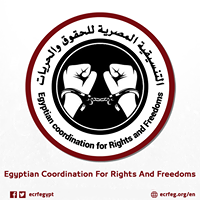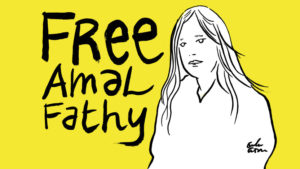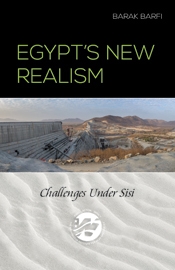 Egypt’s police and National Security Agency (NSA) forces have conducted a mass arrest campaign, rounding up at least 40 human rights workers, lawyers, and political activists since late October 2018, Human Rights Watch said today. Many of those arrested were people who provided humanitarian and legal support to families of political detainees.
Egypt’s police and National Security Agency (NSA) forces have conducted a mass arrest campaign, rounding up at least 40 human rights workers, lawyers, and political activists since late October 2018, Human Rights Watch said today. Many of those arrested were people who provided humanitarian and legal support to families of political detainees.
Human Rights Watch spoke with a lawyer, a human rights activist, and two political activists, who are in direct touch with the families of the people detained. The sources said that none of the security forces showed arrest warrants, and that when families or lawyers tried to find out where the arrested were being held, the authorities would not tell them. …The sources said that some of those arrested were involved with the Egyptian Coordination for Rights and Freedoms, an independent human rights group that has been facing smear campaigns and pro-government media attacks for the past several months. Security forces have held its executive director, Ezzat Ghoniem, a lawyer, incommunicado since September 4, despite a court order to release him.
“The Egyptian security agencies’ repression now extends to disappearing those brave men and women who have been trying to protect the disappeared and to end this abusive practice,” said Michael Page, deputy Middle East and North Africa director at Human Rights Watch. “The government apparently wants to quash what remains of Egyptian civil society.”
 Amal Fathy’s story highlights the national wave of repression and sexual violence, according to Scott Lucas, a professor of International Politics at the University of Birmingham and Giovanni Piazzese, a doctoral researcher at the University of Birmingham.
Amal Fathy’s story highlights the national wave of repression and sexual violence, according to Scott Lucas, a professor of International Politics at the University of Birmingham and Giovanni Piazzese, a doctoral researcher at the University of Birmingham.
Many suspect Fathy’s arrest is a message to her husband, Mohamed Lotfy, the executive director of the Egyptian Commission for Rights and Freedom, they told PRI:
ECRF provides legal assistance to Egyptians, and its reports on human rights abuses have been a thorn in the regime’s side. Since 2015, ECRF staff have regularly been harassed by Egyptian security agencies. Some, such as Mina Thabet and Ahmed Abdallah, spent months in prison, while others, including Lotfy, have been included on a travel ban list. ECRF also provides assistance to the family of the slain Italian researcher Giulio Regeni.
 Barak Barfi’s new Washington Institute study provides a lot of important detail, but it lacks sufficient deliberation on freedom of expression and association, says Carnegie analyst Michele Dunne, a board member of the National Endowment for Democracy. Repression in Egypt is a lot darker than the study suggests, and much worse than it was under Hosni Mubarak, she contends:
Barak Barfi’s new Washington Institute study provides a lot of important detail, but it lacks sufficient deliberation on freedom of expression and association, says Carnegie analyst Michele Dunne, a board member of the National Endowment for Democracy. Repression in Egypt is a lot darker than the study suggests, and much worse than it was under Hosni Mubarak, she contends:
Most victims of state-sponsored violence are young people, and independent media outlets no longer exist. After the revolution, Sisi employed very high levels of brutality to rebuild the wall of fear. Determining the local population’s true opinions on him is difficult because there is no good polling in Egypt. His repressive policies will likely continue for some time; many signs indicate that he plans to amend the constitution in order to abolish term limits and remain in office indefinitely.
More than 7,500 civilians have faced a military court since October 2014, Lucas and Piazzese add:
Last May, several activists, bloggers and journalists were arrested for expressing their opinion, among them the video blogger Shady Abu Zeid, the liberal activist Shady Ghazaly, labor rights lawyer Haitham Mohamedeen(freed at the end of October) and the award-winning journalist and blogger Wael Abbas. A police raid on Nov. 1 led to the arrest of 19 human rights defenders, among them Hoda Abdelmoneim, a former member of the National Commission for Human Rights.







